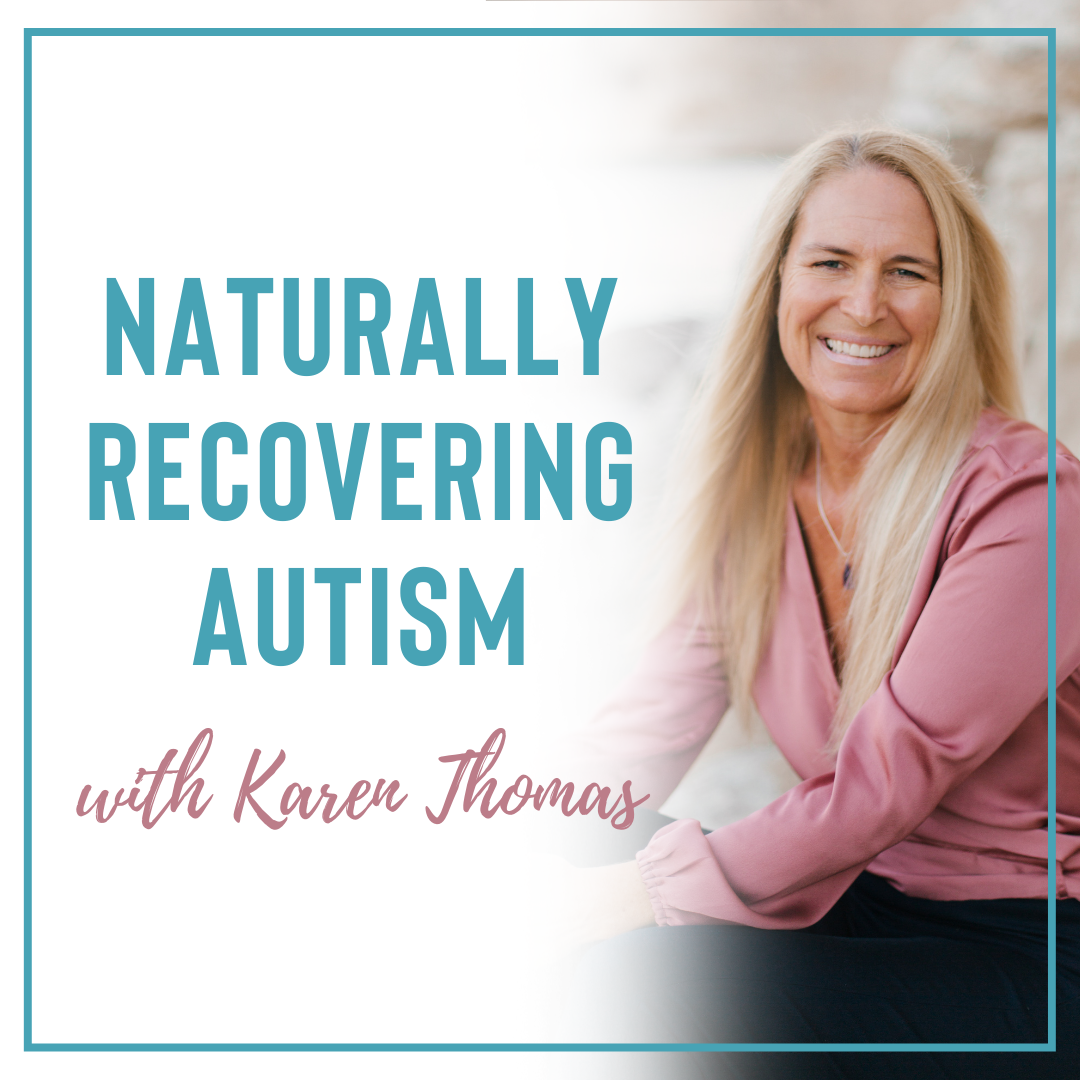

177.2K
Downloads
242
Episodes
Inspiring parents with natural solutions to create the most fulfilling, healthy and productive life possible for their children with autism. Empowering Parents with the Resources to Naturally Recover Autism from a mom who has done it. Having once been told her son could not recover from his symptoms of autism Karen Thomas now shares what she has learned through over a decade of personal research and experience that has brought her own son to recovery. Her background as a Craniosacral Therapist allowed her the awareness that the brain could heal if given the right support. Learn how you can allow your child a clear path for a happier and more fulfilling life with improved communication, better sleep, improved social abilities, and overall improved health. Get your FREE GUIDE to the top 7 foods to eliminate from your child's diet for better sleep, calmer moods, improved focus and speech at, NaturallyRecoveringAutism.com /7foods For more resources go to, NaturallyRecoveringAutism.com
Episodes
![7 Ways To Protect Your Health from Microplastics Now [Podcast Episode #213]](https://pbcdn1.podbean.com/imglogo/ep-logo/pbblog1796738/Episode_Naturally_Recovering_Autismahvu2_300x300.jpg)
Wednesday Feb 05, 2025
7 Ways To Protect Your Health from Microplastics Now [Podcast Episode #213]
Wednesday Feb 05, 2025
Wednesday Feb 05, 2025
Today, we’re diving into a topic that’s both alarming and essential to understand because we are all affected by it. This is the presence of microplastics in the human body, including in newborns’ cord blood, and the potential health implications.
Microplastics are tiny plastic particles less than five millimeters in size. They’ve been detected in various environments including our oceans, the air we breathe, the water we drink and even the food we eat. But the most concerning is their presence within our own bodies.
A recent study published in ‘Environmental International’ examined six human placentas from healthy pregnancies. Researchers found microplastic fragments in four of these placentas.
These particles likely entered the mothers’ bodies through ingestion or inhalation and subsequently reached the placenta. While all the babies were healthy at birth, the study’s lead author expressed concerns that these microplastics could potentially disrupt immune mechanisms in developing infants.
Further research has detected microplastics in umbilical cord blood, indicating that these particles can cross the placental barrier and reach the fetus. This discovery is alarming, as it suggests that exposure begins even before birth.
Animal studies have provided additional insights. For instance, pregnant mice exposed to polystyrene nanoplastics showed that these particles could cross the placental barrier, leading to brain abnormalities in their offspring.
This raises concerns about potential developmental issues in humans, though more research is needed to draw definitive conclusions, we know these are dangerous.
The health implications of microplastics are still being studied, but evidence suggests they can cause inflammation, disrupt hormone function, and lead to other adverse effects.
Hull York Medical School found that these microplastics cause cell death, allergies, and cell wall damage to human tissues.
Given their pervasive presence, it’s crucial to understand how they impact human health, especially during critical developmental periods like pregnancy.
So, what can we do to minimize our exposure to microplastics?
Here are 7 recommendations:...
Click Here or Click the link below for more details!
No comments yet. Be the first to say something!